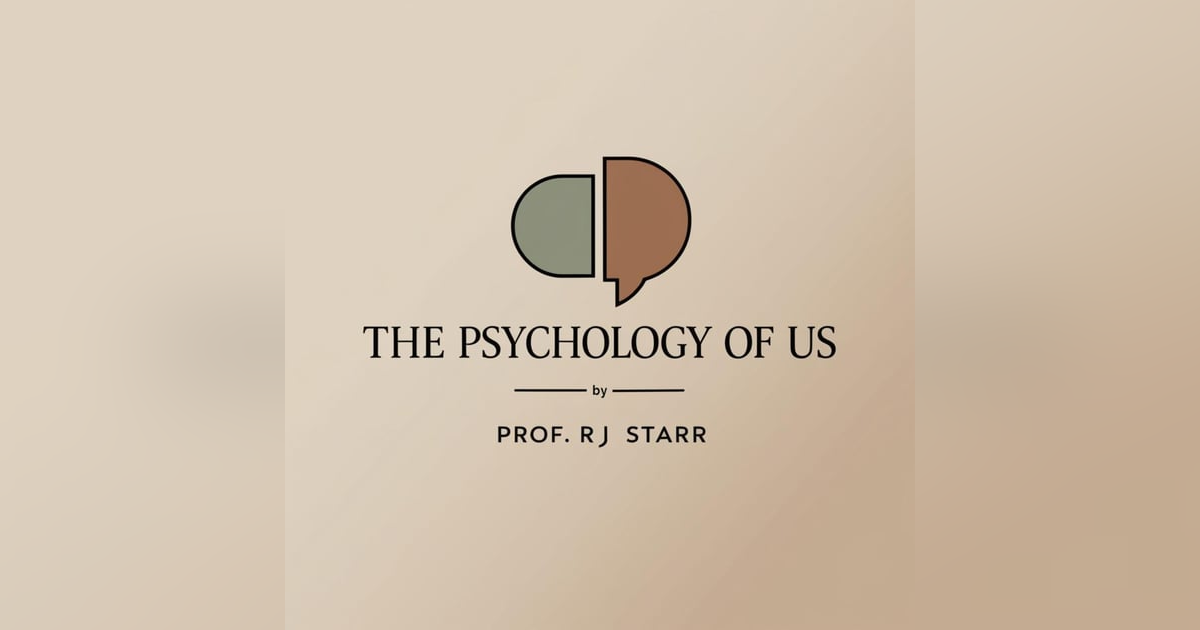The Psychology of Empathy: Why It Matters More Than You Think

Empathy is one of those words we hear constantly—be more empathetic, teach children empathy, demand it from leaders. Yet for all the talk, very few people can actually explain what empathy really is. Most confuse it with being nice, polite, or sympathetic. But sympathy says, “I feel bad for you.” Empathy goes further. It’s the ability to step into another person’s experience without losing track of your own. That difference might sound subtle, but in psychology, it changes everything.
In this episode of The Psychology of Us, psychology professor and author RJ Starr explores empathy as more than a moral virtue. It is a psychological skill—one that predicts cooperation, resilience, and trust across every level of human life. Families who practice empathy raise children who can regulate emotions and form healthy attachments. Teams built on empathy are more creative, loyal, and effective. Communities where empathy is strong are less vulnerable to cruelty and dehumanization. In contrast, when empathy is absent, connections thin out, misunderstandings multiply, and people grow invisible—and invisibility always breeds anger.
RJ Starr examines how empathy develops from our earliest days. Through the lens of attachment theory, he explains how a caregiver’s attunement—or lack of it—teaches a child whether emotions are safe, overwhelming, or unimportant. From there, empathy branches into two complementary capacities: cognitive empathy, the ability to imagine what someone else is thinking or feeling, and affective empathy, the resonance that stirs when we sense another’s joy or pain. Both matter, but neither can survive without self-regulation. To feel with someone else, you must be steady enough to hold both their experience and your own.
The episode also looks at what blocks empathy. Cultural forces like digital outrage, speed, and constant distraction make empathy feel inconvenient. Psychological factors like trauma, defensiveness, or projection distort our ability to connect. And social scripts convince people that empathy is either weakness or agreement, when in truth it is neither. RJ Starr illustrates how these blocks play out in online debates, family conflicts, and workplaces where people talk past each other. The problem isn’t that empathy disappears—it’s that noise, fear, and habit crowd it out.
Most importantly, the episode highlights practice. Empathy is not a trait you either have or lack; it is a discipline you can build. Simple habits—slowing down before responding, reflecting back what you hear, asking one real question, noticing your own emotional reactions—strengthen your ability to connect. These practices don’t require grand gestures, but they do require patience, curiosity, and presence. Over time, they create conditions where people feel seen, valued, and safe.
Empathy is often dismissed as a soft virtue, but in reality it is one of the hardest and most necessary skills we can ever practice. It requires courage to stay present when retreat or attack would be easier. It requires steadiness to hold another’s reality without collapsing into it. And it requires intention, because our culture rarely rewards slowing down enough to listen. But when practiced, empathy has the power to repair broken relationships, restore fractured communities, and interrupt cycles of disconnection that leave people isolated.
Whether you see yourself as naturally empathetic or you’ve struggled to understand others, RJ Starr reframes empathy as something you can learn, sharpen, and carry into every area of life. Because empathy is not just about kindness. It is about recognizing humanity in another person, and in doing so, strengthening your own.





